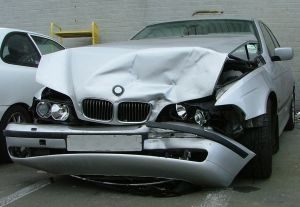 The Longshore and Harbor Workers’ Compensation Act (LHWCA) and Florida’s Workers’ Compensation Act are statutory systems established to handle the provision of benefits to injured workers. The LHWC covers persons engaged in maritime employment, including any longshoreman or other person engaged in longshoring operations, and any harbor-worker including a ship repairman, shipbuilder, and ship-breaker. The injuries must occur on the navigable waters of the United States or in the adjoining areas, including piers, docks, terminals, wharves, and those areas used in loading and unloading vessels. Importantly, Congress extended the LHWCA to include other types of employment. Employees covered by these extensions are entitled to the same benefits, and their claims are handled in the same way as Longshore Act claims. The following are the extensions of the LHWCA: Defense Base Act (DBA); Outer Continental Shelf Lands Act (OCSLA); and Non-Appropriated Fund Instrumentalities Act (NAFIA).
The Longshore and Harbor Workers’ Compensation Act (LHWCA) and Florida’s Workers’ Compensation Act are statutory systems established to handle the provision of benefits to injured workers. The LHWC covers persons engaged in maritime employment, including any longshoreman or other person engaged in longshoring operations, and any harbor-worker including a ship repairman, shipbuilder, and ship-breaker. The injuries must occur on the navigable waters of the United States or in the adjoining areas, including piers, docks, terminals, wharves, and those areas used in loading and unloading vessels. Importantly, Congress extended the LHWCA to include other types of employment. Employees covered by these extensions are entitled to the same benefits, and their claims are handled in the same way as Longshore Act claims. The following are the extensions of the LHWCA: Defense Base Act (DBA); Outer Continental Shelf Lands Act (OCSLA); and Non-Appropriated Fund Instrumentalities Act (NAFIA).
The LHWCA specifically excludes seamen (masters or members of a crew of any vessel, typically, employees working aboard ships, tugs, fishing boats, barges, and dredges, who would be covered by the Jones Act), and employees of the United States government or of any state or foreign government. ;
Most of the rest of Florida employees will fall under Florida’s workers’ compensation system.
While the LHWCA and Florida’s system share many of the same concepts, some of the differences between them, especially as to the quality and quantity of available benefits, are significant. For the most part, the LHWCA is more generous to injured workers. This blog will set out some of the more important differences.
Jurisdiction. The LHWC is a federal law. Jurisdiction lies with the U. S. Department of Labor Office of Workers’ Compensation Programs Division of Longshore and Harbor Workers’ Compensation. Florida workers’ compensation cases are governed by state law. Jurisdiction lies with the State of Florida Division of Administrative Hearings.
Dispute Resolution. While very different from one another, both systems function relatively well. Florida’s system is somewhat more detailed and precise. Hearings and mediations must be completed within specific time periods and its electronic filing system/database is state of the art. The federal system is more ambiguous.
Compensability. Compensability concerns whether a claim is covered or denied. While both systems are what is known as “no-fault,” meaning injured employees are not required to establish fault to be compensated, each has defenses available to employers and their insurance carriers to deny claims. Florida workers’ compensation, in particular, has two potent and popular defenses:
“The injury, its occupational cause, and any resulting manifestations or disability must be established to a reasonable degree of medical certainty, based on objective relevant medical findings, and the accidental compensable injury must be the major contributing cause of any resulting injuries. For purposes of this section, “major contributing cause” means the cause which is more than 50 percent responsible for the injury as compared to all other causes combined for which treatment or benefits are sought.”
The language can prove problematic for injuries superimposed on preexisting conditions such as degeneration and prior injuries. However, it is not uncommon for a work-related accident to aggravate a preexisting condition. Even if the accident-related injury does not total more than 50% of the overall medical condition, the employer/carrier (E/C) are responsible for treating the aggravation until it becomes less than the 50% of the reason for why treatment is necessary. For example, a person with a preexisting back condition that has required fusion surgery, but is otherwise doing well, may suffer an aggravation of the condition from a work related incident. If the aggravation results in the need of medical care, the E/C is responsible for the care. However, once the aggravation subsides, typically when the treating workers’ compensation doctor decides that the aggravation has reached the point known as maximum medical improvement (MMI) — 440.02(1) — compensation for further medical care and lost wages will end.
The main downside of the MCC defense comes when a work-related injury falls below the 50% level for aggravation or permanency. In this circumstance, the E/C is not responsible for any related medical or wage loss benefits. The LHWCA does not have a similar all-or-nothing standard. Benefits can be payable regardless of whether or not the work-related injury is the MCC.
440.09(3): “Compensation is not payable if the injury was occasioned primarily by the intoxication of the employee; by the influence of any drugs, barbiturates, or other stimulants not prescribed by a physician….”
903(c): “No compensation shall be payable if the injury was occasioned solely by the intoxication of the employee….”
Off the bat, the highlighted language shows a dramatic difference between the two standards. It is much easier for employers to establish “occasioned primarily” than “occasioned solely.” Making matters significantly worse is the following language from section 440.09(7)(b), which creates a presumption in favor of the employer that, in most cases, is exceedingly difficult to overcome:
“If the employee has, at the time of the injury, a blood alcohol level equal to or greater than the level specified in s. 316.193, or if the employee has a positive confirmation of a drug as defined in this act, it is presumed that the injury was occasioned primarily by the intoxication of, or by the influence of the drug upon, the employee.”
The LHWCA has no such presumption. To the contrary, the LHWCA provides that “a claim for compensation . . . shall be presumed, in the absence of substantial evidence to the contrary . . . [t]hat the injury was not occasioned solely by the intoxication of the injured employee.” 33 U.S.C. § 920(c). “[T]he employer may rebut the presumption . . . by presenting substantial evidence that is specific and comprehensive enough to sever the potential connection between the disability and the work environment.” Hawaii Stevedores, Inc. v. Ogawa, 608 F.3d 642, 651 (9th Cir. 2010). This is a difficult burden for the employer to meet.
Continue reading
 With a sizable portion of our law firm’s practice engaged in the representation of injured workers, we often tangle with issues related to long term disability insurance. LTD is commonly offered by employers to their employees as a fringe benefit. The employer either pays the full premium, a portion thereof, or nothing at all. One advantage of a group plan (employer based) over an individual plan is that the premium is typically lower due to economies of scale. On the other hand, disputes under group plans are more difficult for insureds to prosecute as compared to individual plans, as the former fall under the less consumer friendly federal ERISA law while the latter are governed by more equitable state laws. Group or individual, benefiting from LTD insurance can prove illusory.
With a sizable portion of our law firm’s practice engaged in the representation of injured workers, we often tangle with issues related to long term disability insurance. LTD is commonly offered by employers to their employees as a fringe benefit. The employer either pays the full premium, a portion thereof, or nothing at all. One advantage of a group plan (employer based) over an individual plan is that the premium is typically lower due to economies of scale. On the other hand, disputes under group plans are more difficult for insureds to prosecute as compared to individual plans, as the former fall under the less consumer friendly federal ERISA law while the latter are governed by more equitable state laws. Group or individual, benefiting from LTD insurance can prove illusory. Florida Injury Attorney Blawg
Florida Injury Attorney Blawg










